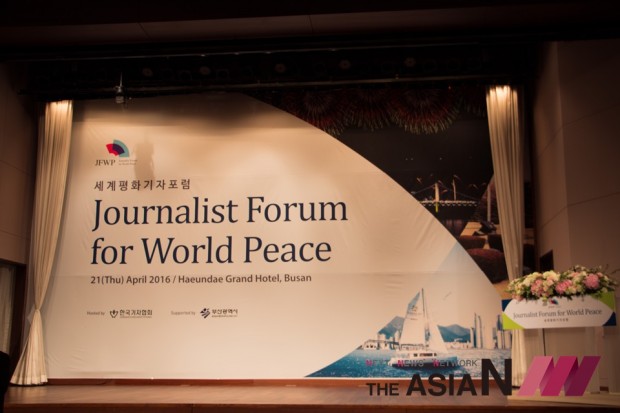From Confucius to Gandhi
What makes the South Korean industry and economy robust? Hard work…sincerity…honesty or simply the righteous character of each and every citizen?
The first thing that strikes a visitor is the calm demeanor and smiling face of the host. Aggression of any kind is missing…in the body language of a common Korean walking on the street or a taxi driver. A welcome change even for an Indian, coming from the ancient land of the Buddha.
The compulsions of a peace-loving nation, under a perpetual threat of a nuclear attack from North Korea, is truly a pity. Journalists from the world were invited in April this year, to mainstream the issue of continued nuclear threats. The “Journalist Forum for World Peace” was to discuss “Denuclearization of the Korean Peninsula and possible unification.
Like many nations, Korea had its share of alien rulers, bloody wars, and subjugation. Righteous armies fought until the end of World War II, when the US forced the Russians to enter the war against the Japanese. The nation got divided and followed the principles of governance of the occupying armies.
It is heartening that Confucius is still alive within the culture of South Korea but sadly twisted for political benefit in the North. Given the violent nature of his times, Confucius believed that rulers should not have to resort to force or the threat of punishment to maintain power. He stated: “Your job is to govern, not to kill” (Analects XII:19).
It is indeed difficult for an Indian like me to understand how Leninist feudalism could be successfully woven with Confucius philosophy in North Korea. A nation that continues to be ruled by a third generation dictator since independence.
According to Chung Young-Soon, associate professor of the Department of History at the Academy of Korean Studies, “The North Korean regime, which, after liberation, adopted Marxist-Leninism as the founding ideology of the regime, severely criticized and denied traditional Confucianism as a pre-modern and feudal ideology based on anachronistic idealism. Korean Confucianism, initially abandoned by the North Korean regime in its formative years, however, was resurrected in Juche ideology in order to justify the dictatorial regime of Kim Il Sung”.
The so called “Communist world” continues to shrink after President Mikhail Gorbachev of USSR introduced glasnost and perestroika in the mid-80s. It will be interesting to watch how long Kim Jong-un remains an unquestioned isolated dictator, while sending out frequent threats of nuclear strikes to democracies in a multipolar world. History will not judge him kindly.
Kim Jong-un will do well to hear the mature words of Gandhi: “I do not want my house to be walled in on all sides and my windows to be stuffed. I want the culture of all lands to be blown about my house as freely as possible. But I refuse to be blown off my feet.”






























































I would like to know about theasian.asia